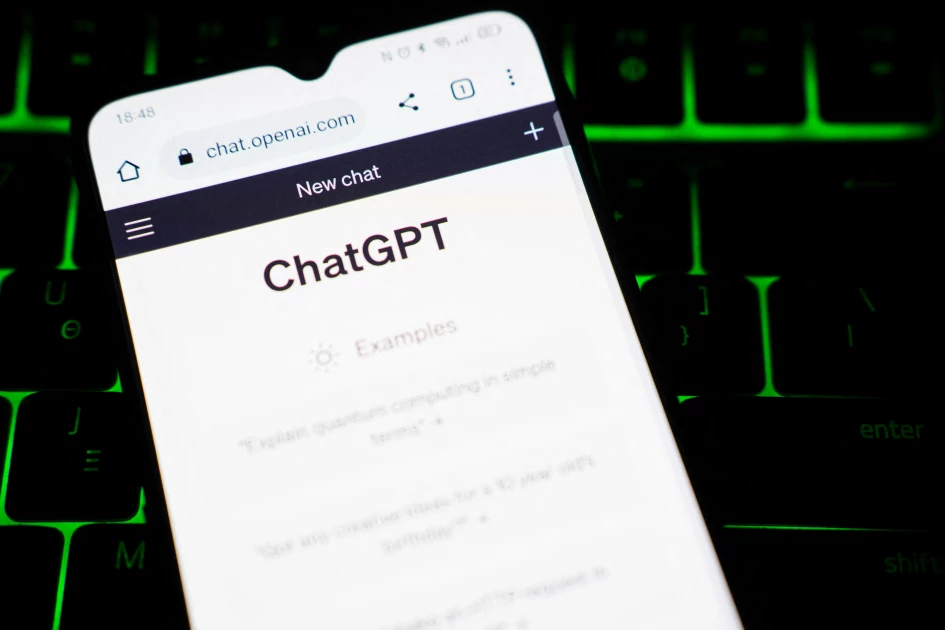How custom ChatGPT tools became the new face of Kenyan civic education

ChatGPT user interface is seen on a smartphone screen over a keyboard. (Photo by AFP)

Audio By Vocalize
Early last month as Kenyans boiled with anger
over the increased taxation the Finance Bill 2024 would introduce at the onset
of the 2024/25 Financial year in July, social media became a public baraza.
Kenyans have traditionally been among the
top social media consumers on the continent, with data from Statista showing
that Kenyan online users spent an average of 3.32 hours a day on social
networking sites in 2023, just minutes behind Nigerians and South Africans.
But this new awakening driven by youth aged
below 28, commonly called Generation Z (Gen Z), increased social media prominence as the new platform for civic engagement.
This is especially so on X and TikTok. For the
former, Kenyans online used hashtags to drive conversation, shared links to
resource materials and old media articles resurfaced as Kenyans dug up
information to explain concepts.
It is also where youth organised protests before
showing up offline in large numbers in towns and cities across Kenya.
However, with the often bulky and jargon-laden government
documents came the challenge of explaining the measures President William Ruto’s
government was proposing in a bid to raise Ksh.346 billion more in revenue for the so-called ordinary Kenyan.
On TikTok, youth teamed up and translated
the contentious Bill into local languages to make sure non-English and Swahili-speaking
Kenyans knew what the government was up to.
Something a few Kenyans expected was,
however, the entry of the popular artificial intelligence (AI) chatbot ChatGPT
into all this. ChatGPT is made by the American AI company OpenAI.
On June 13, the first Kenyan-made custom GPT
tool dubbed ‘Finance Bill GPT’ was announced to help Kenyans better understand the now-scrapped draft law.
The chatbot was created by Kelvin Onkundi, who
describes himself online as a software engineer, and works similarly to how
OpenAI’s ChatGPT operates; taking questions and generating text-based
responses.
Creating AI models involves training them
by exposing them to large amounts of text data such as books, articles, or web
pages, and Onkundi at the time said he trained the GPT tool with the Finance
Bill itself “and some articles from journalists.”
‘KENYA LAW GUIDE’
Just a week later, another Kenyan software
engineer Sospeter Mong’are introduced the ICT Authority Bill 2024 GPT to provide
answers and insights on the Information and Communications Technology Authority
Bill, 2024.
Soon afterwards, Onkundi announced another
custom GPT tool dubbed ‘Kenya Law Guide’, trained on several elements of the Constitution.
On top of the Finance Bill, 2024, the chatbot
explained to Kenyans queries about the Finance Bill, 2023, the Traffic Act, the
Land Laws (Amendment) Bill, 2023 – which lawmakers later dropped after public uproar,
and the Penal Code.
The tool also answers queries from the Auditor-General’s report for the 2022/23 financial year.
Then another Kenyan Marion Kavengi created ‘SHIF
GPT’ to provide a breakdown of the Social Health Insurance Fund (SHIF) which replaced
the National Health Insurance Fund (NHIF).
The GPT tool breaks down patients’ benefits
under the public health insurance scheme across different tariffs.
On June 26, President Ruto announced he would
not sign the Finance Bill, 2024 into law after public pressure and deadly
protests.
Even so, the demonstrations morphed into
resistance against President Ruto’s entire administration over complaints of public
resource wastage, corruption and a failure to listen to Kenyans.
In the backdrop of all this, another GPT
tool was unveiled to provide information about past corruption scandals politicians and government officials have been implicated.
‘Corrupt Politicians GPT’ by X user @BenwithSon
works by taking queries of the name of any Kenyan political figure.
Based on information available on the web,
the chatbot generates a chronological list of corruption scandals the
politician has been linked to beginning from the earliest, details of the cases
and their outcome.
The ChatGPT tool also reveals whether the
politician was prosecuted or if they were cleared of the graft allegations, and cites the sources of each case.
'MAKING INFORMATION ACCESSIBLE'
ChatGPT is built on OpenAI's generative
pre-trained transformer (GPT) models and is refined for conversational
applications.
The virtual assistant was released by the
Microsoft-backed AI company in November 2022 to massive success and has been
credited with stimulating the AI boom.
Post 2021 with OpenAI’s release of GPT-3,
its third large language model, Chatbot applications have seen a spike with the
increase in large language models.
This has led to the birth of AI tools that
can generate almost real-looking images, speech synthesisers and, recently,
text-to-video models.
Currently, there are plenty of LLMs such as
Google’s Gemini, Anthropic’s Claude and Llama 3 by Facebook parent Meta.
OpenAI's most recent GPT foundation model,
GPT-4, was released on March 14, 2023, and the company’s text-to-video
generation model, Sora, is under development.
President Ruto might have dropped the
contentious draft bill, dissolved his Cabinet and pledged austerity by his
government as he works towards an inclusive leadership, but a large number of
Kenyans still want him to “go”.
What began as agitation against tax regimes
has taken a life of its own; in the streets and on social media, Kenyans have been chanting “Ruto must go”, calling for continued protests until Ruto yields and resigns.
In all this, the developers of these GPT
tools see it as a more accessible way of championing civic education towards
holding the government into account.
“We need to make all this information, Bills
and Acts of Parliament accessible to everybody,” Onkundi said in June.


Leave a Comment